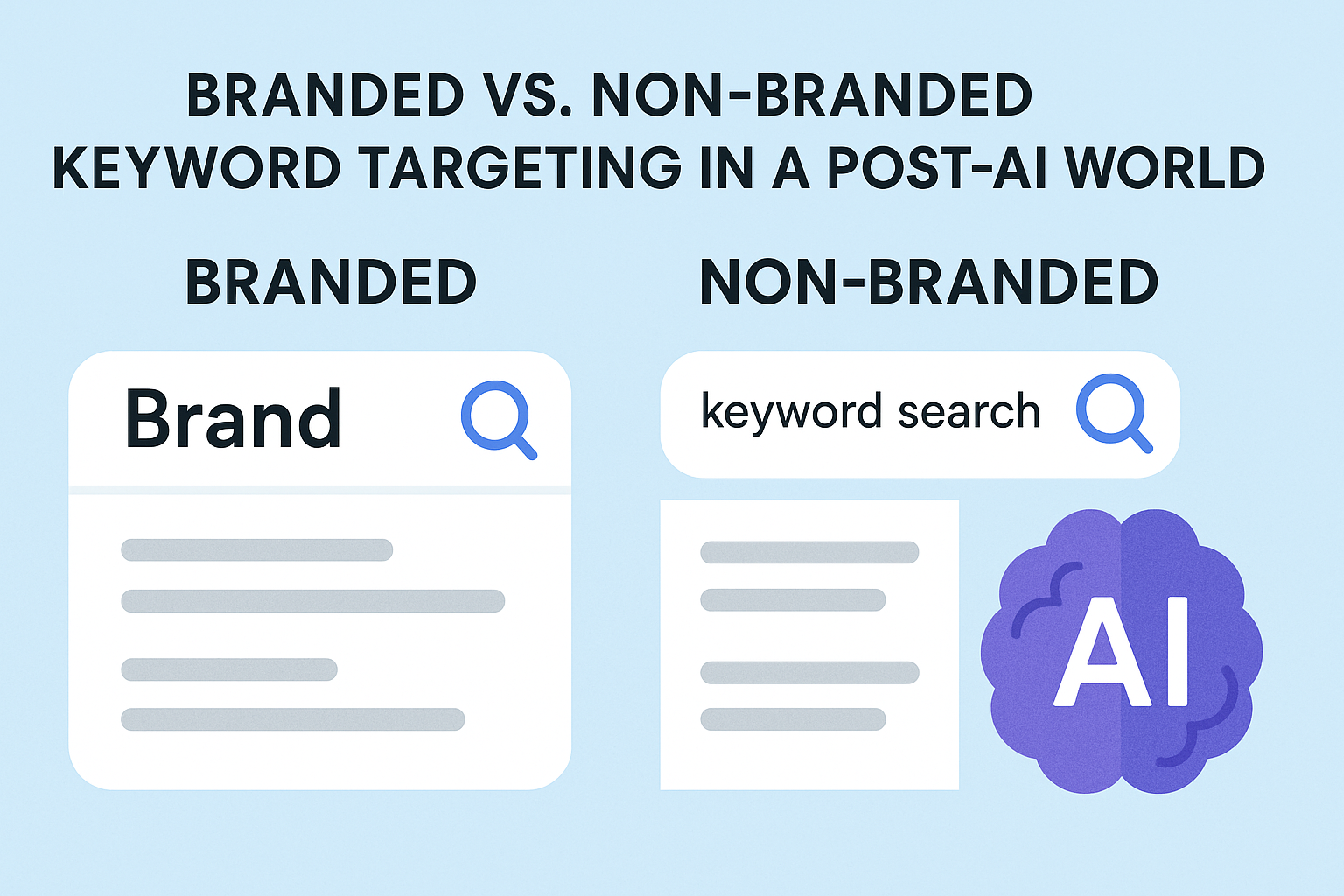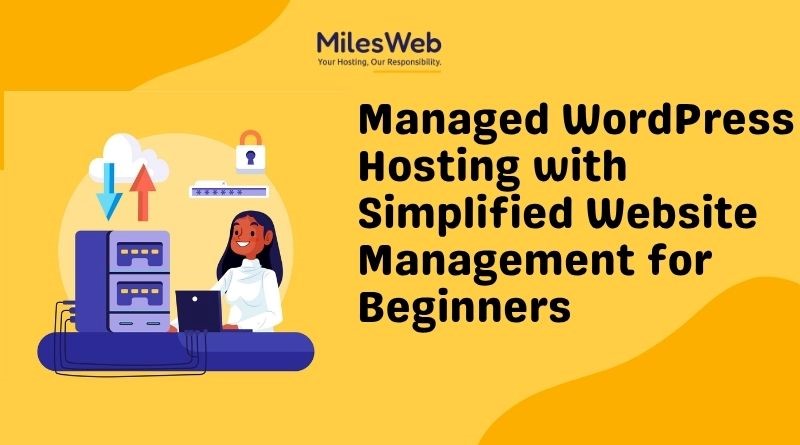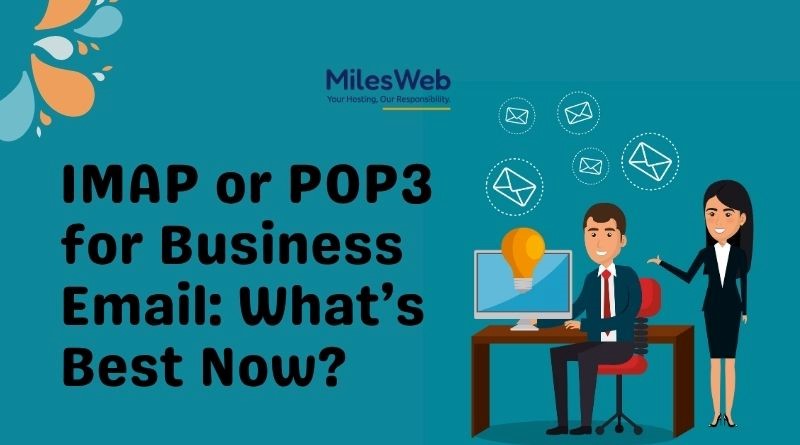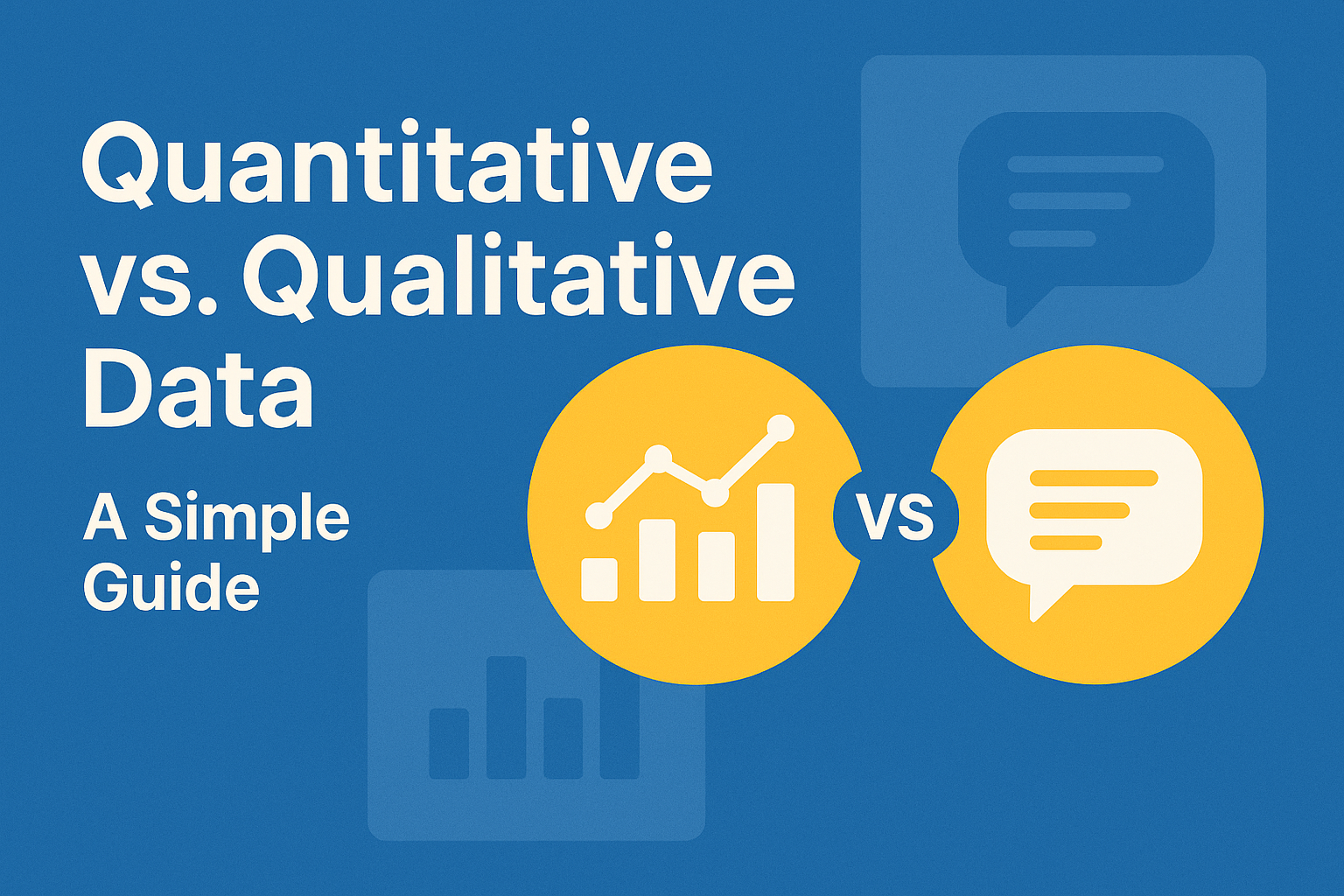Impeccable keyword research is one of the most important aspects of SEO in a world driven by AI. Search engines like Google can better target the audience for your text by properly integrating relevant keywords into your blog entries and website pages. Marketers emphasize keywords when it comes to SEO, but it’s a game of subtleties, knowing which keyword to employ when and eagerly monitoring the outcomes of your strategic approach.
So, the first step that a top AI-driven digital marketing company in the USA applies is to conduct outstanding keyword research to understand branded and non-branded keywords. We’ll help you start by going over the distinctions between these two keyword groups in the content that follows, along with tips on how to benefit from each.
What are Branded Keywords?
Search keywords that contain a brand, company name, or variations of it are known as “branded keywords.” Usually, those who are already familiar with your brand use these keywords when they type your brand name into their search query. For example, when you search for “Adidas sneakers” or “Dyson Hair Straightener,” you are using a branded phrase.
Branded keywords account for 18% of the average Google Search ad expenditure. Although a brand’s ranking highly for its keywords might seem like a formality, many brands also distribute through physical and online retailers, which can make achieving a high ranking difficult.
Still searching for SEO services near me? The best AI-driven SEO partners let you enjoy being at the top of Google for your own branded keywords. People who search for your brand are closer to completing a purchase and further down the funnel, resulting in better conversion and click-through rates.
When to use:
- Get high-intent traffic: When users actively look up your brand.
- Boost brand awareness: Particularly helpful when a new product is introduced.
- Preserve market share: Keep your branded traffic from being stolen by rivals.
- Manage your brand’s messaging: Make sure that social media, PPC, and SEO are all consistent.
What are Non-Branded Keywords?
Non-branded keywords, sometimes referred to as generic keywords, are terms associated with the product or service but do not bear the brand name. Words like “running shoes” or “online shopping store” may be among them. Customers who might not be familiar with your brand and are looking for more information before making a purchase are usually the ones who use them.
Ranking for non-branded keywords can be challenging because they sometimes have far higher search volumes and competitiveness than branded phrases. As a result, ranking at the top of Google for these keywords can take a while, but if you are successful, the rewards might be substantial.
When to use:
- Extend your reach: Reach out to new audiences who have never heard of your brand before. Since 72% of customers who conduct a local search visit a business within five miles of their current location, ranking for non-branded, locally relevant inquiries is an effective strategy to draw in foot traffic.
- Inform the market: Provide insightful content to address frequently asked questions in the business.
- Draw in early-stage purchasers: Establish your brand at the outset of the decision-making process.
Branded Vs. Non-Branded Keywords: What should be your AI SEO approach?
AI-driven SEO and PPC reach people at different moments in their buying journey, so using both branded and generic keywords matters. Here’s how to pick what fits you best:
1. Competition
The degree of competition is determined by the number of advertisers bidding on a keyword in Keyword Planner. Since non-branded keywords aren’t exclusive to a single business, they are inherently more competitive.
2. Visibility
Non-branded keywords are more visible in searches than branded ones. They should therefore be the focus of brand awareness efforts to increase visibility and drive organic traffic to your website. Non-branded keywords can be used to target every step of the sales funnel, from awareness to conversion.
3. Price
Because there is less competition for branded keywords, their cost-per-click (CPC) is usually cheaper. The cost of displaying an ad for a keyword is often only a few cents if only a small number of advertisers bid on it. Therefore, branded keywords will be among your most excellent options for low-cost-per-click (CPC) ads if sticking to a predetermined budget is one of your main priorities with PPC.
4. Conversion Value
Conversion is the ultimate goal of all search campaigns! Because online users who search for branded keywords are usually down the sales funnel, campaigns that target these keywords generally have better conversion rates. These users are ready to convert since they are already familiar with your brand, products, or services. When it comes to starting initial interactions with your brand, non-branded keywords are crucial. Both types of keywords are significant for every phase of the sales funnel.
Top 6 Tips to Balance the Non-Branded and Branded Keywords in your Strategy
Understanding the use cases of both branded and non-branded keywords is crucial because there can be a thin line between the two. You should strike a balance between material geared toward branded keywords like product pages and non-branded keywords like blog posts and category pages. This balance is crucial when developing an AI-driven SEO strategy and content for a website. Here are a few more ways to strike the right balance:
1. Get your branded keywords to rank organically.
Branded keywords are usually the easiest to climb the rankings for, especially if your business name is unique or uncommon. Make it a top priority to optimize your homepage and other company pages for your brand name if you aren’t already ranking for branded keywords.
2. Optimize non-branded keywords in your SEO campaigns.
Maintaining organic ranks for branded keywords shouldn’t be difficult once you’ve done so, unless, of course, another business has the same name. In addition to improving your online visibility, raising your organic rankings for non-branded keywords is more economical over time than PPC campaigns.
3. Analyze performance frequently
Make data-driven adjustments to your keyword strategy and spending. Increase the budget if a non-brand term begins to convert well; consider rival bidding if the cost-per-click (CPC) of a branded keyword increases.
4. Make separate PPC ads for branded and non-branded keywords.
You should make distinct campaigns for branded and non-branded keywords when running PPC advertisements for your business. You shouldn’t limit yourself to only these segments. You might develop a distinctive non-branded campaign, but it must be distinct for each of your product categories.
5. Use retargeting.
Retarget users who initially found you using non-branded keywords with branded searches. For example, you could retarget someone who found you by searching for “best CRM software” with an ad that shows “[Your Brand] CRM vs. Competitor.”
6. Make landing pages more varied.
Ensure that while non-branded keywords take readers to informative information that encourages a sale, brand keyword searches result in pages that are conversion-focused.
Summing Up
Choosing the relevant keywords is essential in digital marketing to drive focused traffic and succeed as a business. You must include both branded and non-branded keywords in your SEO and PPC plans for a thorough and effective marketing strategy. While non-branded keywords enable you to attract new customers, inform your audience, and establish enduring trust, branded keywords assist you in attracting high-intent consumers and managing your brand story.
A professional SEO service in the USA helps businesses optimize their online presence, promote significant interaction, and boost conversions at every point of the buyer’s journey by striking a balance between these two keyword categories, matching search intent, and regularly monitoring results. Watch your PPC and SEO efforts take off as you begin developing a keyword strategy that suits your brand.
Frequently Asked Questions
What can I use to monitor the performance of my branded and non-branded keywords?
Track the contributions of branded and non-branded keywords to traffic, engagement, and conversions using analytics tools such as Google Analytics and Search Console.
What is the difference between the keywords in terms of user intent?
Users who are already familiar with your brand and are closer to completing a purchase are drawn in by branded keywords. Users at earlier phases of the buyer’s journey, typically those who are investigating or considering their options, are drawn to non-branded keywords.
What are the ideal keywords for launching a new brand product?
You should promote events, new product releases, and special deals with branded keywords. One way to target high-intent customers is to establish a Google Ads campaign using phrases like Sephora Black Friday deals.
How can a blend of branded and non-branded keywords boost an AI-SEO strategy?
Using a strategic combination of branded and non-branded keywords will help you increase conversions, attract high-quality traffic, and establish your place in the cutthroat digital market.

The Search Engine Cage team is on a mission to educate entrepreneurs. We make things easier for the small business owner, by writing articles that help them to understand SEO and Digital Marketing.







